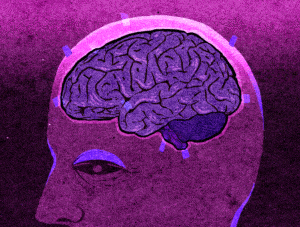
The world around us constantly reminds us of the importance of taking good care of our bodies and improving our physical and mental health. It no surprise that mental health is often overlooked until it turns into a problem. But mental health isn’t just a diagnosis. It’s actually your overall wellbeing.
Everything from relationships to physical health to happiness to success at work is influenced by whatever’s going on in your head. For that reason, you ought to prioritize mental health and devote plenty of time and attention to looking after it. Here are nine self-care tips for staying mentally healthy.
- Learn A Foreign Language
- Get outside
Staying indoors too much can affect your mental health. Several studies have shown that being out in nature helps boost your mental wellbeing. A study by a team of researchers from Stanford University found that a 90-minute walk in a natural environment decreased activity in the subgenual prefrontal cortex, the region of the brain associated with negative thinking.
Another study that was published in the Environmental Science & Technology journal found that spending just five minutes in green space could increase self-esteem. Now go for a stroll in the park or trail to get a much-needed dose of nature. Your brain will thank you for that.
- Set goals but don’t be too hard on yourself
Setting high goals for yourself can be the first step toward great success. It can spur creativity and raise your performance levels. However, don’t expect to check all these goals off your list in a month or even a year. Perfectionism will make you worry a lot when you fall short of achieving your goals and cause feelings of worthlessness and failure, which can degrade your mental health. Research has shown an association between perfectionism and poor health as well as a reduction in life expectancy. In women, it can increase the risk of developing postpartum depression.
The secret to avoiding the perfectionist trap is setting small, realistic goals instead of one very big goal. Also, don’t take your failures personally.

- Eat healthy
The right diet can improve your mental health. The likes of blueberries, avocados, nuts, beans, whole grains, and pomegranate contain nutrients that boost brain health, such as omega-3 fatty acids, monounsaturated fat, and vitamin E. It’s worth mentioning that pomegranate has numerous tiny seeds, which may make eating the fruit highly inconveniencing. An alternative would be juicing for health conscious person so don’t buy any juicer out there before checking reviews to ensure only best juicer is bought as it will not cause any stress when juicing.
- Move your body
Research has shown that physical exercise is a potent antidote to anxiety and depression. In fact, one study found physical exercise to be more effective than mental workouts in reducing age-related decline of the brain. It also helps improve memory, attention, learning, and creativity.
Look for several ways to add physical activity to your schedule. For best results, aim at exercising for not less than 30 minutes each day.
- Break up monotony
Your normal routine can make you very efficient and add to your feelings of safety and security. However, it can zap your joy and creativity over time. A little change can reinvigorate your schedule, boost happiness and confidence, and improve your mental outlook. Learn a new skill, change your jogging route, try out a new recipe, put yourself in new social situations, or pick up a new sport.

- Meditate
Meditation helps you relax your body and quiet your mind. Some studies suggest that it literally reduces activity in the regions of the brain that convey pain signals and slows the age-related thinning of the brain’s frontal cortex. Meditation has also been shown to be useful in helping people with anxiety or depression free their minds from harmful thoughts.
You can choose to meditate in group classes or on your own in a quiet, comfortable space. Thankfully, there a number of apps to help you hone your meditation practice.
- Get adequate sleep
Sleep deprivation affects your mood negatively. Researchers also believe that it contributes to the high depression rates among college students. Sleep for 7 to 9 hours each night. It’s equally important to adopt habits that encourage better sleep, like going to bed at around the same time every day, only drinking caffeinated drinks in the morning, and using the bed for sleep alone. Adequate sleep will allow your brain to recharge, operate at full capacity, and lift your mood.
- Do something for other people
Studies show that doing something for someone else boosts your happiness and life satisfaction. Indulging in hedonism, on the other hand, doesn’t always result in happiness, especially in the long term. Volunteer your energy and time to assist someone in need. The meaning you’ll find in doing that will enrich your life.

- Don’t stress over minor things
Every day, you’ll face minor issues that can elicit negative feelings. How you decide to react to them may ruin not only your day but also the rest of your life. A 2013 study found that the stronger the negative response that people had towards small things like arguments and waiting in traffic, the more the anxiety and distress they were likely to have 10 years later.
Don’t let everyday issues stress you and negatively influence your moments because they’ll cumulatively harm your mental health in the long term.
Making the changes above will improve your mental health, which in turn will enrich every other aspect of your life.









































